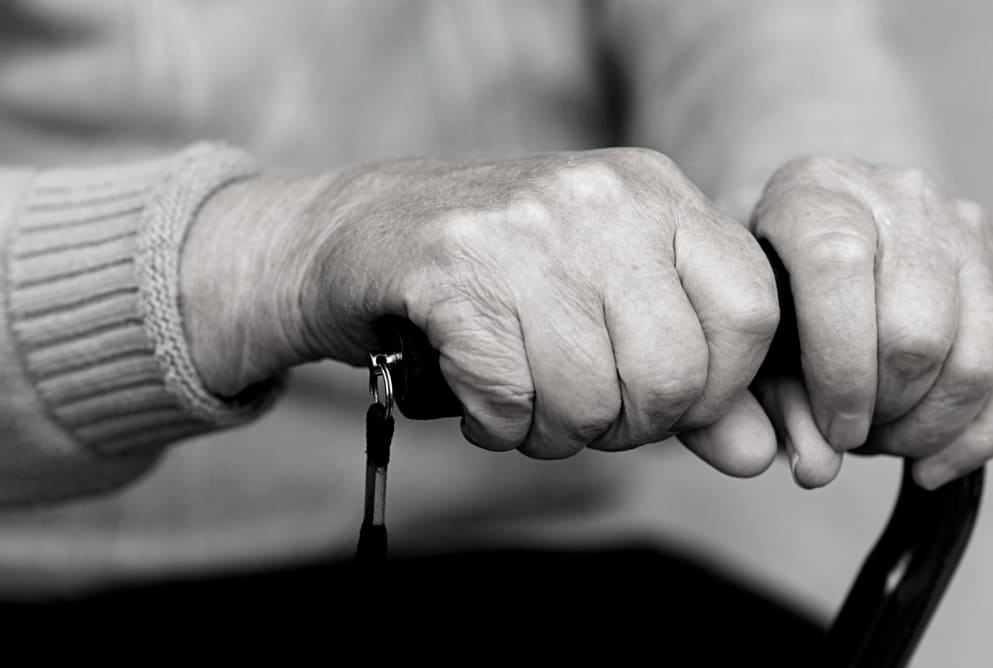Homelessness can happen to anyone. No matter your age, gender or background, the one constant about homelessness is that it simply doesn’t discriminate.
One demographic increasingly affected by homelessness are those aged 60 and over. In 2018, over 2,500 people aged 60+ were officially homeless – that’s double the number recorded in 2009. What’s more, 9-12% of rough sleepers are estimated to be aged 55 and over.
Whilst we don’t have a full and complete understanding of why this is happening, there are some very clear contributing factors. Let’s take a look.
Housing that’s not fit for purpose
As we get older, our needs change. Things like climbing the stairs or taking a shower can become more of a challenge, and put people at risk of falls and subsequent injuries. It might also be that a wheelchair is needed in order to get around, but what happens if someone’s home isn’t set up for this?
Adapting living spaces to become accessible as people get older can be difficult, not to mention very expensive. For those who are renting privately, finding suitable accommodation, especially when you factor in the continuing cost of living crisis. Isn’t easy. As a result, we’re seeing a higher number of older people at risk of homelessness. Age UK has estimated that over 2 million older people live in housing that’s completely unsuitable for their needs.
Financial pressure, pensions and benefits
More people than ever are working past retirement age in order to cover the basic costs of living. And this is the case both for those who are privately renting or paying a mortgage.
With rising rent, food and fuel prices, as well as the lifting of the eviction ban, it’s no surprise that many older people are simply unable to afford their homes, let alone one that meets their needs.
For those people over 60 who still have a mortgage to pay, rising interest rates and a lack of affordable fixed-rate deals may well leave some older homeowners facing repossession. Relationship breakdowns in later life can play their part here, with many left without the capital they need to buy another home in today’s volatile market.
Unaffordable social housing and Local Housing Allowance
Shelter discovered that 67% of private renters aged 55-64 won’t be able to pay rent on a suitable home when they retire, unless they receive adequate housing benefit. Unfortunately, the freeze to the Local Housing Allowance announced in the 2022 Autumn Statement means that this is set to be a continuing problem.
The wider consequences
Anyone facing homelessness is already at risk of experiencing a poorer quality of life compared with someone who isn’t. The chances of becoming ill, or the exacerbation of any pre-existing conditions, are much more likely for people who don’t have a secure and stable place to live. For those who are older, these problems are heightened, statistics showing that they’re more likely to suffer from conditions such as dementia and depression.
Ultimately, not addressing these issues requires more from our social care system and our NHS, both of which are already under s significant amount of pressure.
Making a change
The government's failure to increase benefits inline with the rising cost of living will undoubtedly result in thousands more older people struggling to make ends meet. If we want to enact change, sufficient benefits and social housing are one of the only sustainable solutions to this growing problem.
Signing Shelter’s campaign and calling on the government to build social housing is a great and easy way to get involved, and is a great place to start when looking to support a positive change.
At Simon on the Streets, the outreach and support we provide is long-term and always ongoing. We work closely with our clients, whatever their circumstances, through both practical and emotional challenges, to help them take back control of their lives. We’re dedicated to continuing this until we break the cycle of homelessness. If you want to help us, get involved.
